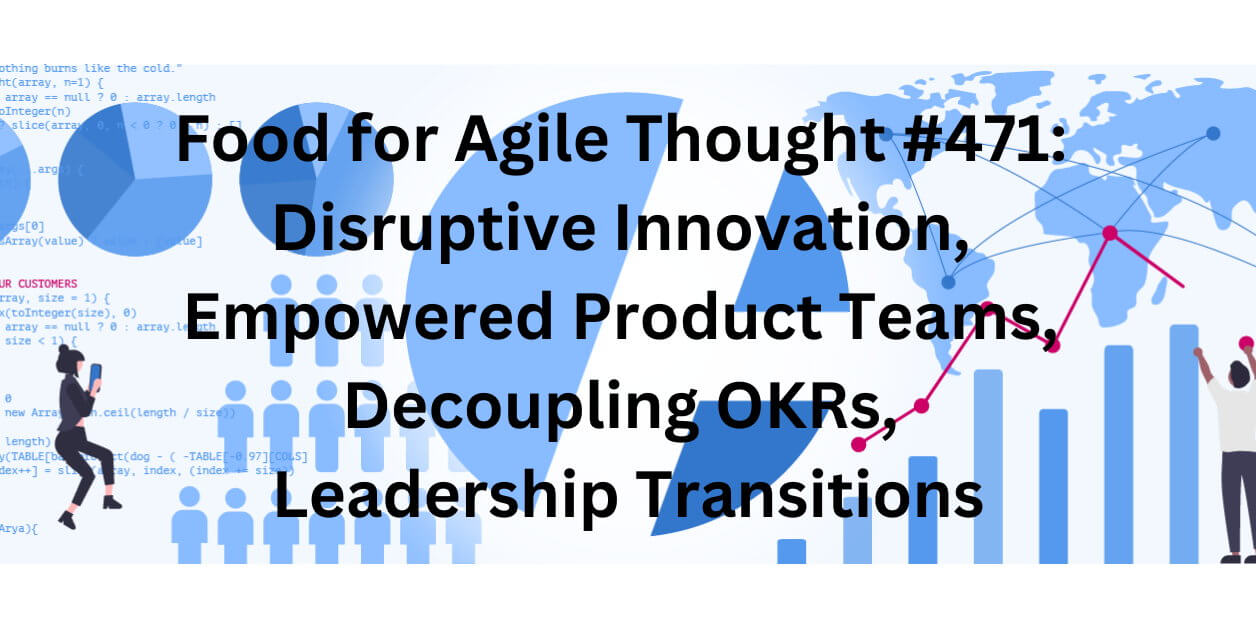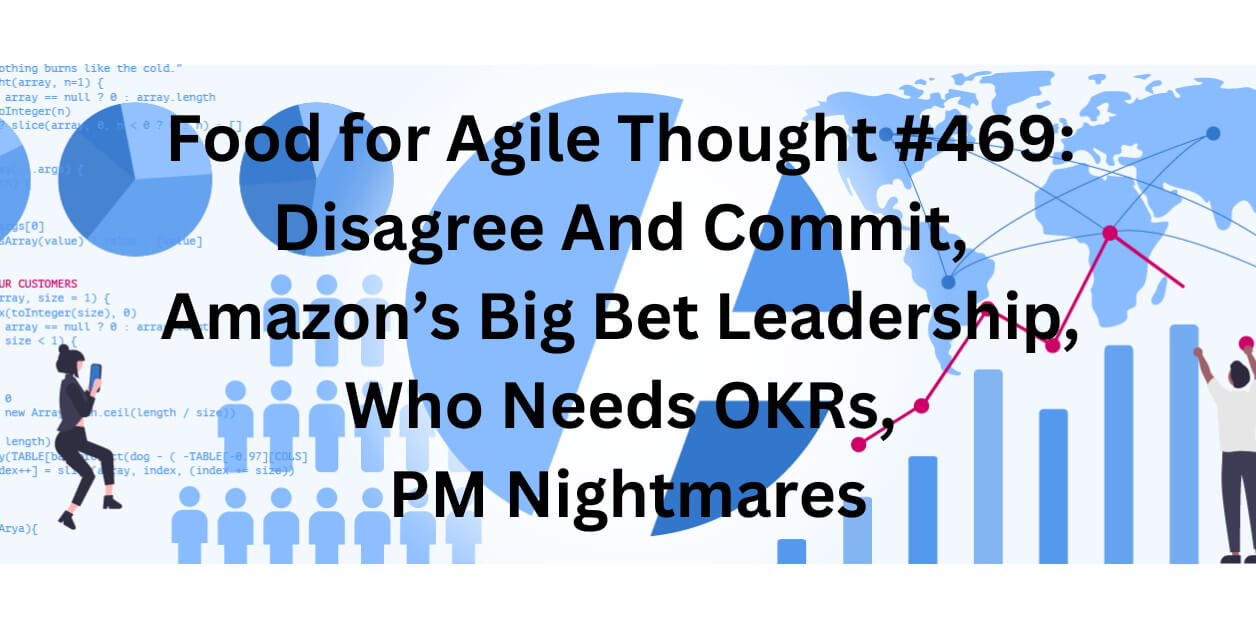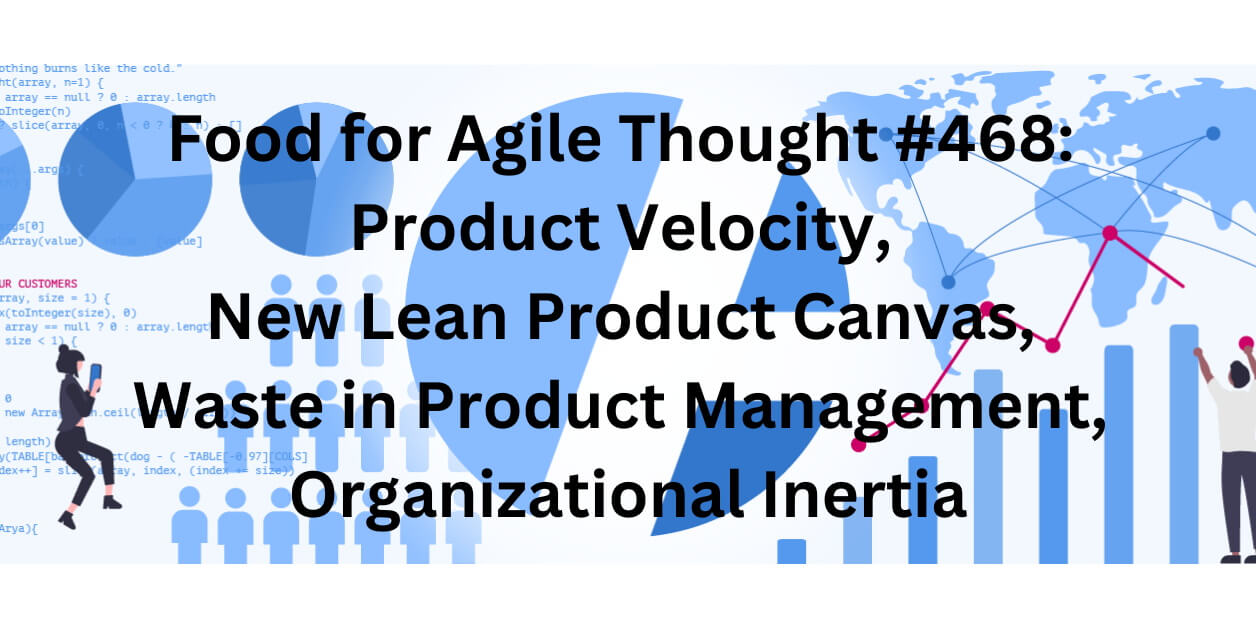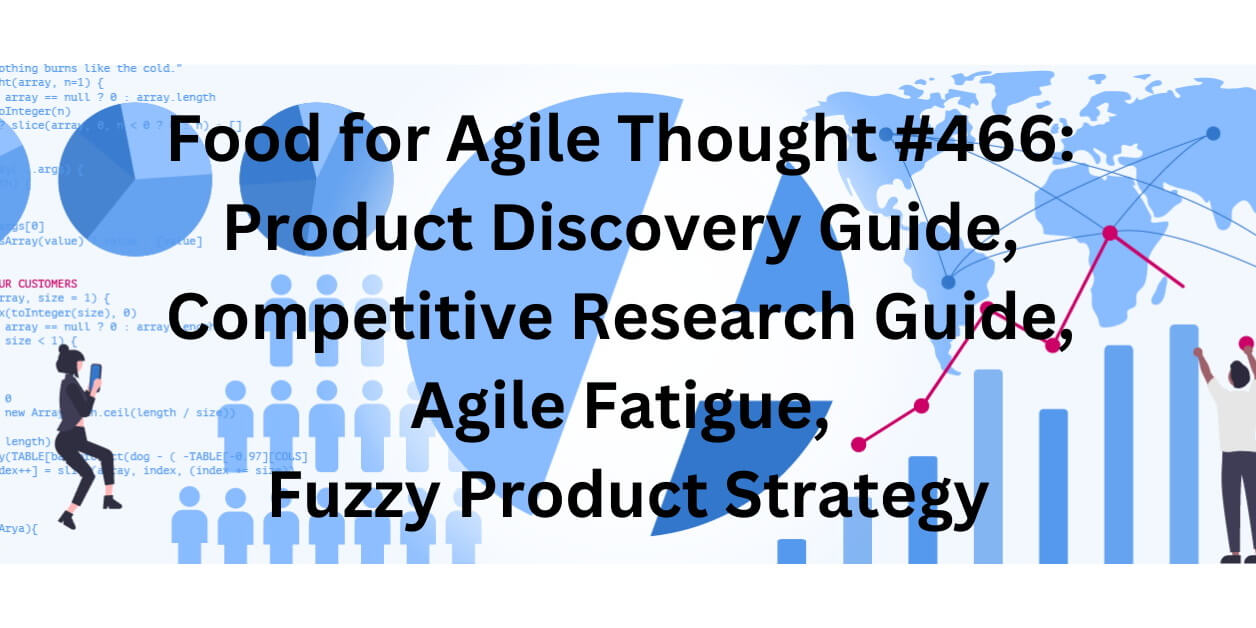TL; DR: Disruptive Innovation — Food for Agile Thought #471
Welcome to the 471st edition of the Food for Agile Thought newsletter, shared with 42,887 peers. This week, Steven Sinofsky delves into the resilience and boldness required for disruptive innovation, while Robert A. Calkins gleans leadership insights from Star Trek: TNG. Michael Y. Lee tackles the complexities of decentralization, Jason Little and Dawna Jones offer strategies for managing organizational tangles, and Vincent Baas critiques the misuse of popular innovation quotes, advocating for thoughtful, context-aware application.
Next, Christophe Achouiantz reveals how meaningful problems and supportive environments enable true team empowerment, while Mike Fisher underscores the importance of outcomes over outputs for business success. Yue Zhao and Paweł Huryn share Meta’s pre-mortem approach to proactive risk management, and Paul McAvinchey explores retention strategies for sustainable growth and lasting user engagement.
Lastly, Christian Scheb unpacks Elon Musk’s “5 Step Process” for engineering rigor, while Itamar Gilad explores AI’s role in elevating data-driven product decisions. Christina Wodtke champions “decoupled OKRs” to foster team autonomy, and Ant Murphy warns against blind reliance on data. Finally, Tim Tully, Joff Redfern, and Derek Xiao examine generative AI’s 2024 evolution from pilots to enterprise-scale execution.






